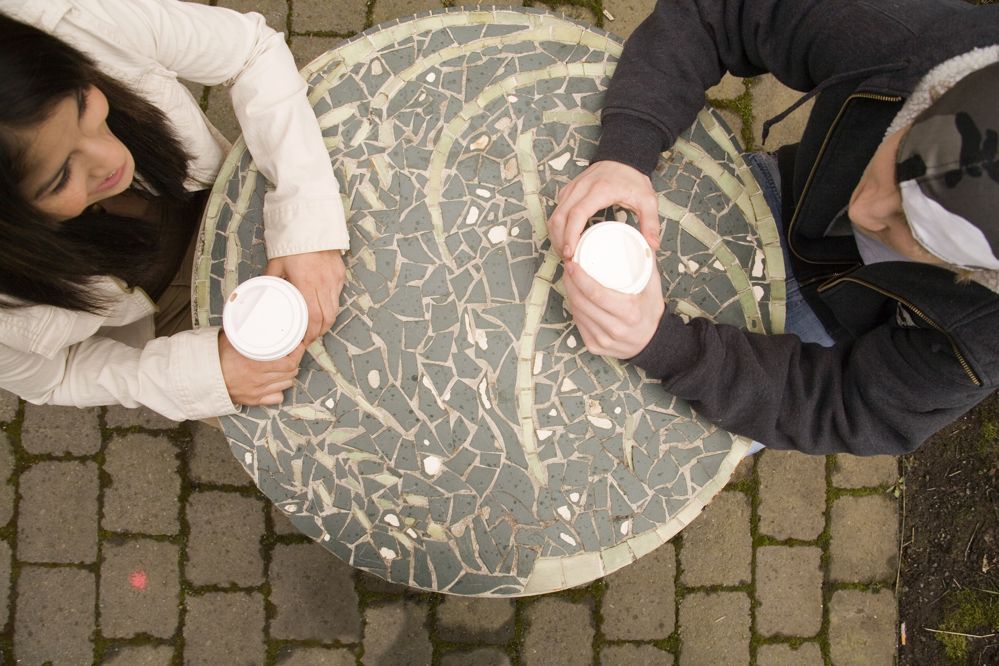I’ve heard many Christian dating “horror stories.” It’s funny, because sometimes when I asked the person why it was so terrible, they said something like, “They were so rude! They texted me to ask me out instead of calling on the phone.” Or, “They didn’t offer to pick me up from my house. They didn’t even text me to say ‘thank you’ afterward. It was just a really bad experience.”
I thought, “I’ve probably done some of those things before, and didn’t think there was anything wrong with them. The rules are changing so fast!”
How many potential relationships have died before they really got started, simply because of mismatched expectations in this rapidly changing world of dating?
Out of curiosity, and for the sake of helping people’s dating signals be more accurately deciphered, I ran a Facebook survey. I requested a female perspective from my really talented (and funny) blogging friend, Claire Galloway, and together we crafted the questions.
You can check out the full results and take the survey yourself here.
The survey showed me that even in a world full of digital interactions, striving for gender equality, and racing at a faster pace than ever, we still must demonstrate respect, chivalry and kindness. Matthew 7:12 sums up this approach: “So whatever you wish that others would do to you, do also to them, for this is the Law and the Prophets.”
Digital doesn’t mean less respectful
With technology’s current role in our lives overall, I wondered how many people are OK with meeting and asking someone out over digital media. Most participants were fine with meeting and being asked out over any medium, whether that be a dating app, Facebook Messenger, text or over the phone. But a remaining quarter of the participants said they’d only be OK establishing a connection in person. A majority of people agreed that it was good to ask someone out in person or over the phone. So, if we have someone’s phone number, we should probably call to ask them out.
In regards to having our phones out on the date itself, half of people thought phones should be on silent and stay in a pocket or purse unless it buzzes repeatedly like there’s an emergency. Almost everybody agreed that the date is meant to get to know the other person, so don’t disrespect them by being on your phone.
Now that texting is a significant way we communicate, I’ve wondered if a post-date text that says, “Thank you, I had a nice time” is just a polite formality, or does it mean something more? Just over half of survey participants thought sending a text is an indicator of whether or not the person wants to go out again. But about a third thought it should be sent as a polite formality either way. Perhaps if we receive a nice text from our date but we don’t see a future with them, we can respond by respectfully communicating that. The general rule here is to think about what most respectfully communicates our intentions.
Chivalry in the rise of feminism
With today’s broader cultural applications of feminism and gender equality, how many people still expect men to exhibit chivalry? Survey participants agreed it was still meaningful for men to be chivalrous. And almost everybody said it was OK if the woman made more money, was better connected socially, had a more powerful job, or was older.
Even though gender equality is important, it doesn’t mean chivalry should go away. Both genders being of equal worth doesn’t mean they can’t play different roles in the dance of romance. Just because the male peacock struts his feathers to woo a female doesn’t mean either is any less important in the partnership. Ephesians 5 prescribes different roles for the sexes. And according to the survey, society still expects men to show their appreciation for the women in certain ways, just as there are ways for women to show their appreciation for men.
Respectful timing in a fast-paced world
How soon should a second date be requested? Answers varied pretty evenly between suggestions of three or four days, about a week, and no timeline at all. Most people said they would try a second date even if there were no sparks on the first one. But most also said we should know ourselves well enough to know whether we are likely to change our minds on a second meeting. While a potential connection should be given as much chance as possible, there is no need to lead someone on longer than necessary.
Should we date more than one person at a time? Many said they’d become exclusive after two to three dates. Others said it was only necessary to narrow it down after there is a DTR (Define the Relationship) talk. And how many dates can we go on before it is considered impolite to break it off over a text? The most popular choice by far was “after three dates.” So it seems that after three dates is when hearts are beginning to be enough involved that a raised level of communication and commitment begins to be important, and we should act accordingly.
Conclusion
I hope studying expectations like the ones outlined above helps us date more respectfully so there is less miscommunication and more honoring exchanges in the already confusing and difficult world of modern Christian dating.
How do the above findings compare with your expectations?












